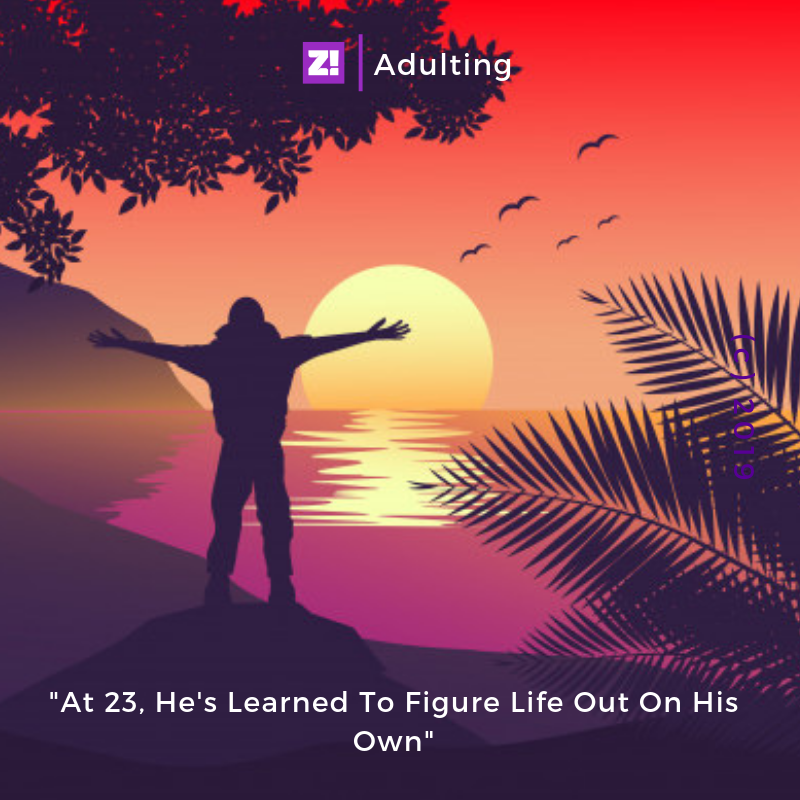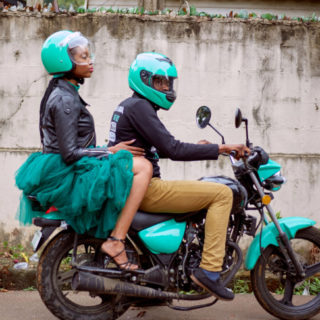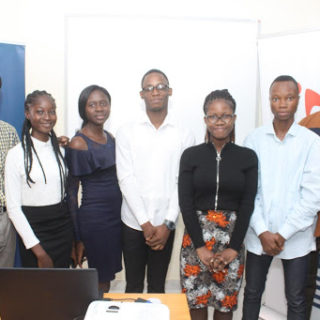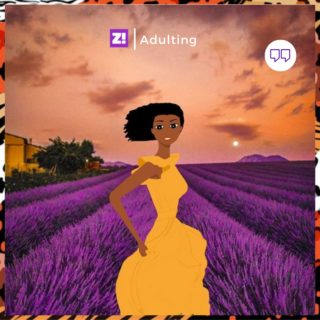In certain cultures, adulting is marked with rituals, tests and celebrations. But when you’re Nigerian, adulting often comes at you without warning. Adulting comes in different forms; bills, family, responsibility, and you guessed it, a child.
Everyone who’s crossed that bridge has a unique story. Stories that can help you see you’re not alone. That’s why every Thursday at 9 am, we’ll bring you one Nigerian’s journey to adulthood, the moment it happened and how it shaped them.
The question we’ve been asking is, “when did you realise you were an adult?”

The guy in this story is 23. He thought he had it all figured out. He had a role model in his Uncle and he wanted to be just like him. Then life happened and his template just didn’t work out.
“As a child, I always fantasised about adulthood because of the freedom I figured I would have once I reached that stage. That was all it was; the freedom. Growing up in a small town in Ogun State meant I was lonely for the most part. I was raised by a single mum, in a one-room apartment. I spent a lot of time indoors and alone. As a child, my only company was books and cartoons. My mum is a primary school teacher who used to work for a private school with foreign owners before she left for the civil service. I was lucky that the school she worked for at that time had a very good Children’s Library.”
“She borrowed a lot of books and cartoon cassettes on my behalf. I had access to almost all the Disney titles at that time. You know the names – Cinderella, Sleeping Beauty, Snow White and The Seven Dwarves, Hansel and Gretel, Goldilocks and the Three Bears, The Three Little Pigs, Peter and Jane, Jack and the Beanstalk. I’m sure you get the idea. Then there were cartoons such as The Lion King which I’m definitely going to see the live-action remake on release, The Jungle Book, and more. I watched the cassettes until they stopped working. Basically, I was the “Get inside” kind of child. I didn’t have a lot of friends because I mean, how am I supposed to make friends when I’m stuck inside all day, every day?”
“But it wasn’t all gloom and doom. The cartoons and books helped form my speaking and writing abilities as a child so I was better than most of my peers at that time. My mum was a very strict person, but the strictness reduced as I grew older. I guess in a way, her strictness and keeping me indoors most of the time was her own way of being protective of me because I was all she had. I always had food to eat, attended decent schools, and most of my needs were always met. I had an uncle who lived in the same town. He was well to do and had children around the same age as me. I visited often, played and bonded a lot with my cousins. They were like the siblings I never had. They also weren’t allowed to go out like me, so all we had was each other, books and cartoons.”
“My favourite memory of my childhood was my fifth birthday. It was the only birthday where I had a cake or a party. I’m not big on parties which is very strange for someone that lived most of his life in Ijebu. I still have pictures of that day. I’m especially very fond of the one that captured me and one of my cousins fighting over who would hold the cake knife. It was my birthday and the dude wanted to steal my shine. I look back at those times and I just wish I could go back to being a child. Life was so easy. All I had to do was go to school, eat, talk to my school crush and go back home with butterflies in my tummy. I really thought adulthood would be easy. I looked up to my uncle a lot.
“Eventually, I got my wish. I got admitted into one of the top Federal Universities in the country on my first trial. I was really elated and my mum was very happy. I selected the same course my uncle had studied in school because I just wanted to be like him. Unfortunately, in my second year, I discovered I didn’t like the course and it wasn’t for me. I’m not a dumb person, but when I don’t like or lose interest in something, I tend to do very poorly in it. Freedom came at its cost. My time management skills were very poor as it was my first taste of independence. I still struggle with management, but I’m much better at it now. My grades began to slide and I equally was nonchalant about it – until it slipped to the point of no return.”
“University happened and I eventually graduated with what I call a ‘terrible result’. From that point, life hit me really fast. The aftermath was terrible. I disappointed my mum and a lot of people that had high hopes in me. I disappointed myself too because I knew I was way better than what I had achieved. I was depressed for about three months. I couldn’t go out, mingle and socialize. I was dead broke also. I had stopped getting an allowance from home.”
“As you may know, terrible results don’t make it easy to get a job. I didn’t get replies from many of the places I applied to because of my results, and I didn’t even have the skills that could cover up for it. I was nowhere near what I had envisaged my life to be. The part about finishing, getting a job and making my mother proud? It wasn’t happening at all. I wasn’t close to being like the man who was my role model. I wasn’t living the American dream or the Nigerian one even. Those were very hard times. Time passed and I eventually forgave myself. I realised I had to wake up and pull myself together. So I formulated a plan.”
“I would describe myself as somewhat tech-savvy, and I knew that entering the tech space was more about skills than certificates, so I set out to gain those skills. My mum wanted me to do a PGD, and then get a Masters’ Degree, but I knew that wasn’t for me. I had lost interest totally in that course. Against the wishes of everyone close to me, I ventured into tech. The people around me were afraid that I was being oblivious and impractical so they pretty much left me to my devices. There was very little support from anyone.”
“I started with hardware, learned it from semi-skilled ‘engineers’. I had to endure a lot of irreverence from them but I stuck at it and remembered I was there for a reason. When I finished, I set out on my own. I started taking jobs repairing stuff for people, doing home services and all. I also started freelance writing for blogs for a while but that was very stressful and the pay wasn’t too much. This is the part where I say creative writing is really harder than it looks.”
“Then one day, I stumbled upon a programming tutorial, and I really liked what I saw. I didn’t have a background in Computer Science but I decided I wanted to pursue Software Development. So I saved up and finally had enough money to pay for a Bootcamp. I think to leave all the things I was doing and deciding to attend that Software Development Bootcamp is one of the bravest things I have ever done. I left all the safe options for the risky one. It was harder because no-one seemed to understand why or what it was that I was doing. People are always afraid of what they do not understand. Regardless, I persevered and finished the boot camp. Things pretty much changed after then.”
“Here and now, I like to think I’m doing really well for myself. I earn my living as a software developer. I’m not the small town kid anymore – I share a three-bedroom flat with my cousin in Magodo Phase 2 in Lagos. My mum is still the small town girl – she still lives in the same town in Ogun. I’m no longer the disappointment or liability to anyone that I thought I was. But I recognise that I had to take the leap myself. I wouldn’t be where I am today without attending that Bootcamp. Of course, in the immortal words of Uncle Ben from Spiderman, “With great power comes great responsibility.”
“Adulting comes with lots of bills to pay, lots of friends and family looking up to you for one thing or the other, societal obligations and so on. It can be sometimes very overwhelming but each day brings some more experience and patience to navigate all of it. I still think I may have gotten where I am faster if I had graduated with a better result. But I’m still grateful for where I am today. I’m still relatively young and I have my whole future ahead of me. I can’t keep dwelling in the past and thinking of what might have been. The past is history, but in the present lies the power to shape the future. That statement is what I try to live by every day, all day.”
“Looking back, I think the greatest lessons I have learnt is to discover yourself early. Do not try to run a race with or against anyone. Just be yourself and measure your own progress with your own predetermined milestones and not with another person’s success or failure. I think it’s important to be careful about advice. Don’t be eager to just adopt any advice, even when it comes from the closest people to you. They may mean well and they often do, but they aren’t in your shoes and their advice might not be well suited to help you. The world is changing rapidly, but most of our parents, uncles and aunts are not. Most of them don’t know it but we’re adulting in a different world than they did.”




